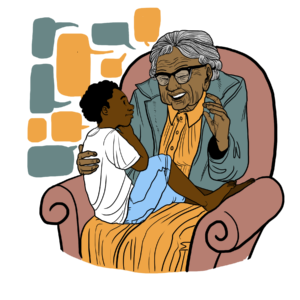![]()

President Donald Trump didn’t seem to know who Frederick Douglass was when he mentioned the slave-turned-abolitionist and suffrage campaigner at a Black History Month event on Feb. 1.
“Frederick Douglass is an example of somebody who’s done an amazing job and is getting recognized more and more, I notice,” Trump said in his Black History Month speech. Trump did not mention what Douglass’ contributions to black history are.
We the Threefold Advocate believe that people should actively seek to learn about black history. Giving lip service to the lives of great figures during one month of the year is not enough.
As a refresher, Douglass escaped slavery in Maryland and became a renowned anti-slavery speaker and writer. Douglass wrote several autobiographies. Douglass spoke and wrote for the causes of ending slavery.
Promoted African American rights, women’s rights, peace, land reform, free public education and the abolition of capital punishment.
Throughout U.S. history, African Americans have consistently been a force for democracy. The black community has held the U.S. accountable to the ideals of the Constitution, that all humans are created equal. Throughout U.S. history, it is often black people like Douglass holding up a mirror to the nation to show where systems of oppression exist and must be removed.Honoring black U.S. history helps us honor great warriors of American liberty. It also helps people who are not black understand black culture and experiences of African Americans.
Unfortunately, school curriculums in the U.S. lack education on topics related to black history. The main historic events taught about are slavery, the civil rights movement and recently, former-President Barack Obama. Students are not learning about celebrated authors, activists and politicians that compose U.S. cultural heritage. What is being taught shows oppressed people fighting and suffering, but there is little celebration of the accomplishments of black figures. When one learns that black people have historically been pushed out of their own neighborhoods and excluded from community, it affects the way one sees current events.
The John Brown University foundation reflected racial segregation of American society before the 1940s when it was intentionally white. The University has worked hard to promote diversity and open conversation to further understand black culture and history, but there is still a lack of black representation at JBU.
We encourage students to sign up for classes at JBU such as African History, [Politics and Race in America] and Diversity and Media Issues. Students can also attend MOSAIC meetings once a month to hear the stories of other students, or go to a race-related forum on campus. We also recommend that students go to MOSAIC’s movie and documentary screenings. The University provides mission trips for students to learn more about Christian community development within communities of color that are affected by systemic racism. These include the Chicago mission trip this spring break, the Jackson trip next fall break and the Tulsa trip next January.
If you are unable to attend any of these events, it is important to incorporate black history into our daily lives and not only once a year. Open yourself up to diverse perspectives with your media choices. Research and understand the Black Lives Matter movement. There are plenty of African American authors and articles that explain more about black heritage. Watch movies with a black protagonist or black directors. Listen to black musicians and artists or read a book by and for black people. By reading or learning about African American literature you will better understand African American culture, and you can create an informed platform of discussion. We encourage everyone to not only rely on black students on campus to understand racial issues but to also research and learn from the many resources available online and in print.
Black History Month is a time to celebrate the accomplishments of all people of color. Black History Month seeks to celebrate more than just African American history, but all who are of African descent in the U.S. It is important for us to be aware of their great accomplishments. We the Threefold Advocate encourage readers to seek ways to learn more about black history and current black experiences beyond February, and make Black History Month a time of celebration.




